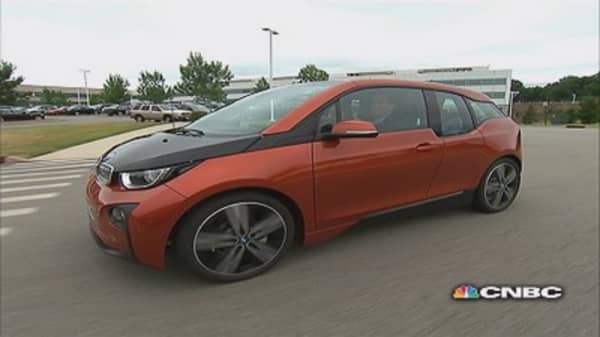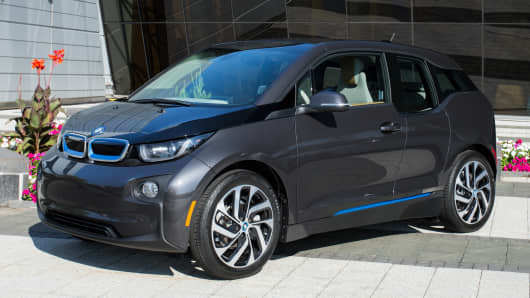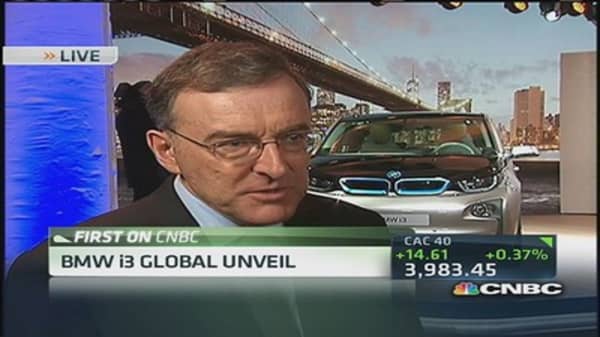One look at the BMW i3 and you'll know this is not your typical BMW.
True, the German automaker's first full fledged mass market all-electric car has many of the signature cues of a BMW including the kidney bean front grills, the square corners and the rear pillars.
Still, when CEO Norbert Reithofer officially unveils the i3 production model in New York City Monday morning, there will be some who look at the "megacity vehicle" and wonder if BMW has chosen the right approach when it comes to the electric car.
The i3 is unique, there's no doubt about that.
(Read more: First drive: 261 mpg Volkswagen XL1)
And for the price BMW will charge, $41,350 before federal and state tax credits, the German automaker is counting on those unique features to win over electric car buyers around the world.
"When it sits in a showroom, the i3 will look every bit as premium as other BMW models," said Eric Noble, CEO of the Car Lab, and an automotive design and consulting firm in Southern California.






